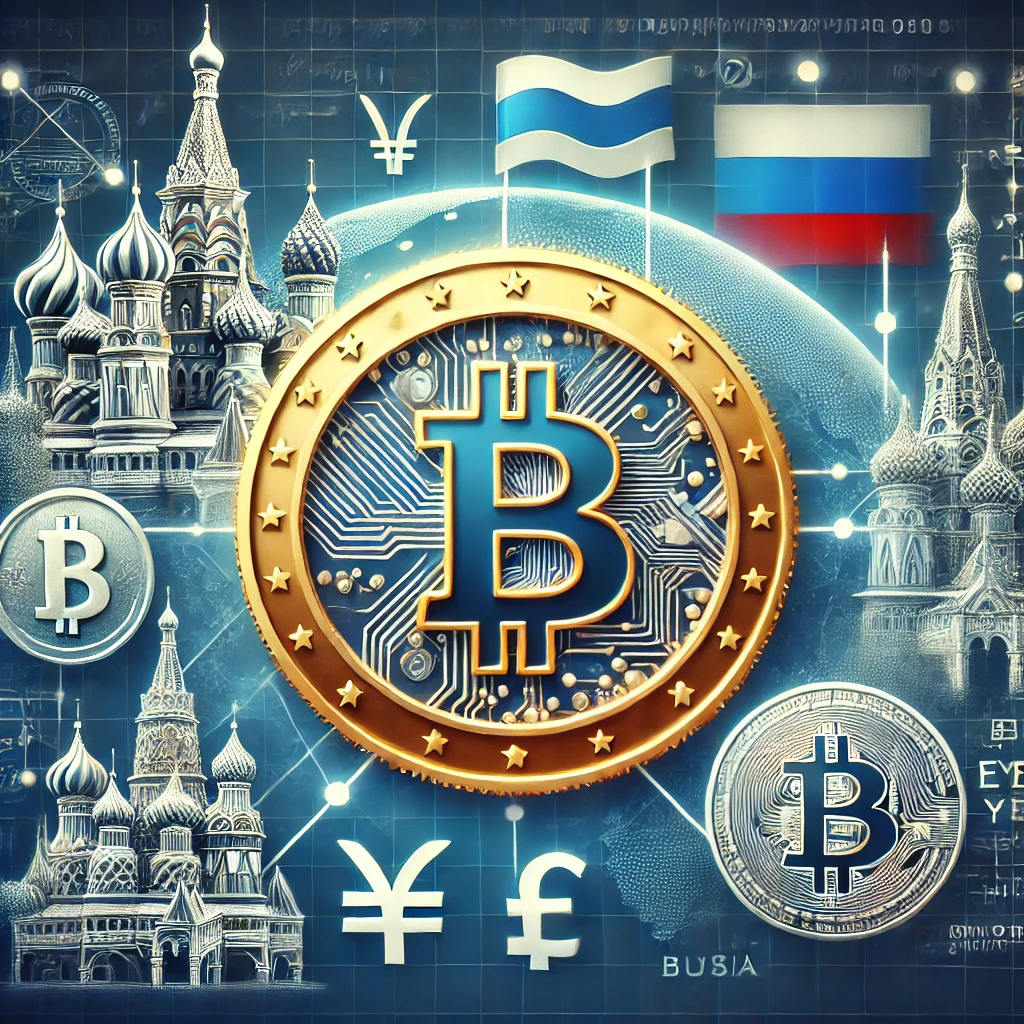
Russia plans to use bitcoins for international trade starting September 1, excluding traditional financial institutions. This move aims to diversify the economy and reduce dependence on Western control and the U.S. dollar.
Russia’s Strategic Shift in Economic Policy
The idea of using cryptocurrency for payment in international transactions represents a major change in Russia’s economic policy. Traditionally, the country has relied on conventional foreign currencies, including U.S. dollars and euros, for cross-border transactions. Nonetheless, the economic sanctions’ application by the Western countries has compelled Russia to search for other methods to make payments. Through cryptocurrencies, Russia seeks to boost the efficacy and security of international payment systems and, at the same time, marginalize the control of global financial institutions.
Russia’s Deputy Finance Minister, Alexei Moiseev, is leading the push to use digital currencies to enhance international trade. At a recent press conference, Moiseev explained that cryptocurrencies can make payment systems more secure and independent, especially amid global sanctions. The need for financial autonomy is top-notch.
Implementation and Regulatory Framework
Russia’s Ministry of Finance and the Central Bank are developing a legal framework for cryptocurrencies. This framework will ensure that all transactions, including those on platforms, comply with Russian laws and provide a secure and transparent environment for cross-border commerce.
This particular framework has foresightedness on the establishment of a national cryptocurrency exchange platform. The platform will serve as a central marketplace for cryptocurrencies, allowing businesses to transact, purchase, or sell their preferred cryptocurrencies through legal channels. It will also facilitate the conversion of cryptocurrencies into Russian rubles, helping businesses manage their finances effectively.
Impact on Global Trade Relations
Gradually, the use of cryptocurrencies by Russia for international transactions is expected to bring about a revolution in trade relations. By adopting digital currencies, Russia aims to strengthen economic ties with countries seeking alternatives to the U.S. dollar. This move could create new trade connections, especially with nations affected by Western sanctions or looking for new payment systems.
Using cryptocurrencies for transactions, rather than relying on middlemen, could reduce transaction costs and time for cross-border payments. This may lower export costs for Russia, making its goods more competitive globally by increasing transaction efficiency.
Challenges and Concerns
It is widely understood that accepting cryptocurrencies has both advantages and disadvantages, which are discussed below. One of the disadvantages is the unpredictability of most digital currencies, leading to transactions having varying values. To avoid this risk, Russia is looking into the possibilities with the use of stablecoins—the cryptocurrencies backed by a stable asset such as the US dollar or gold.
Another issue with using bitcoins and other cryptocurrencies is their potential use for hiding unlawful activities, such as money laundering and financing terrorism. To solve this problem, Russia has intensified the requirements for AML and KYC in the framework of regulations. Such measures will ensure that all the transactions are secure and leave traces, hence minimizing the possibility of unlawful activities.
Future Outlook
The use of cryptocurrencies to settle international transactions by Russia could be considered as one of the steps towards the development of financial freedom. Thus, as the country proceeds with its programs, it will attract the attention of other countries and international organizations. Success in this area by major economies could prompt other nations to explore digital currencies in their international business and commerce, potentially reshaping the global financial landscape.
Despite ongoing challenges, Russia remains committed to integrating new technologies to overcome economic limitations and maintain its global power status. As cryptocurrencies and blockchain become mainstream, expanding their acceptance in Russia will undoubtedly be a significant advancement in the evolving global economy.
Discover more from The African Crypto
Subscribe to get the latest posts sent to your email.








